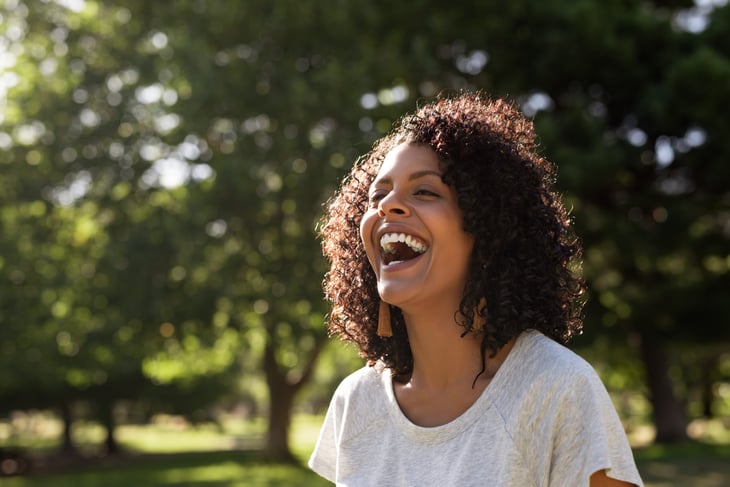
Editor's Note: This story originally appeared on NewRetirement.
Dan Buettner is the founder of Blue Zones. Blue Zones is an organization devoted to helping people live longer, better lives by sharing the lessons of the longest-lived cultures.
You may have heard about him recently as he now stars in a new NetFlix series, “Live to 100, Secrets of the Blue Zones.” In Episode 1 he travels to the Japanese island of Okinawa to learn about “ikigai.”
However, the Okinawans actually have many traditions that demonstrate proven concepts for a long and happy life. Here we dive into the concepts of ikigai, “moai,” “hara hachi bu,” and more.
Who Are the Okinawans and What Do They Know About Longevity?
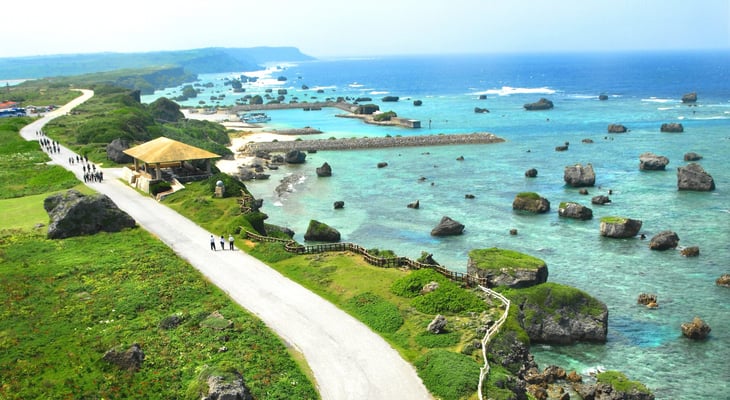
Okinawa is an island south of mainland Japan where the East China Sea meets the Pacific Ocean. It is a beautiful tropical place with some of the world’s longest-living humans.
On average, men live until 84 and women until 90. There is also a very high concentration of centenarians – people who are 100 or more.
Most surprisingly perhaps is that even the oldest Okinawans are considered healthy and have the emotional, physical and intellectual capacity to live and function independently.
So, what’s their secret? Researchers say that the Okinawan secrets include the concepts of ikigai, moai and hara hachi bu.
Let’s find out what these intriguing words mean.
What Is Ikigai?
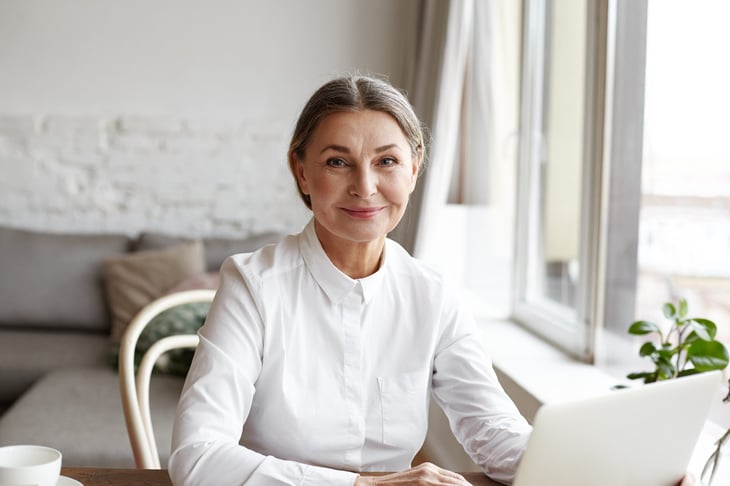
Google translates ikigai from Japanese to English as “reason to live.” And, this is probably a good, if simple, description.
Living a long life does seem to require having a sense of purpose well into old age. At least one international study found that people who have a sense of purpose in life are at lower risk of death and heart disease.
Those who feel purpose often have healthier lifestyles. And, they are more motivated and resilient, which protects them from stress and burnout.
So, how do you figure out your ikigai/reason to live?
The Japanese construct of ikigai describes the intersection of what you love, what you are good at, what the world needs and what you can get paid for.
Essential Qualities of Ikigai
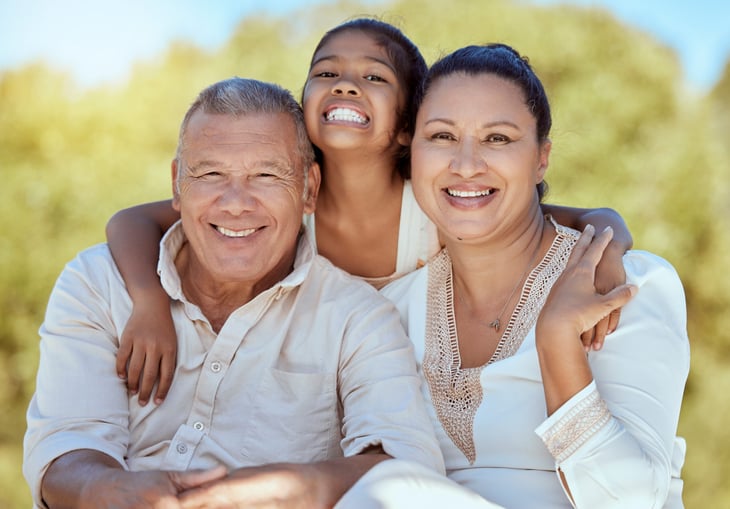
Other essential qualities of ikigai:
- It is challenging to you. Your ikigai should be something that you need to strive to master.
- Ikigai is your choice, not something foisted upon you.
- It involves commitment from you
Here are a few resources for learning more about ikigai:
- Book: “Ikigai, The Japanese Secret to a Long and Happy Life” by Hector Garcia and Francesc Miralles
- Video: Ted Talk, How to Ikigai, Tim Tamashiro
- Video: Ted Talk, Don’t Wait to Find Your Ikigai, Gangadharan Menon
What Is Moai?
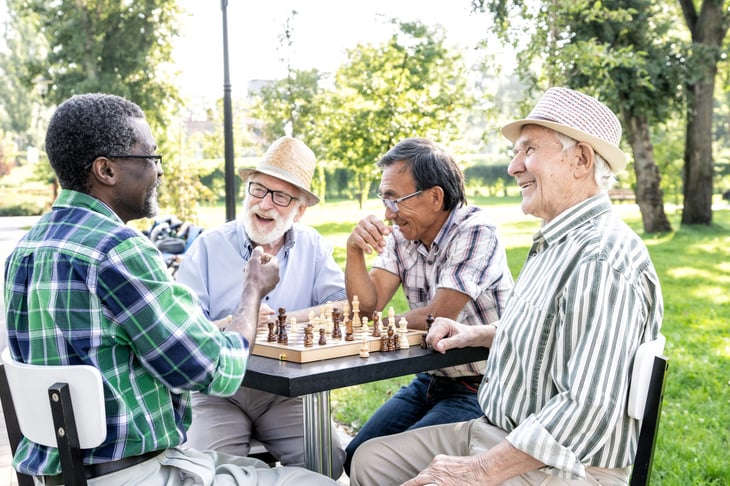
In Japanese, moai refers to a group of lifelong friends. It also means a social support group that provides social, financial, health or spiritual interests.
The concept of moai is being popularized in the United States by Buettner.
Moai in Okinawa
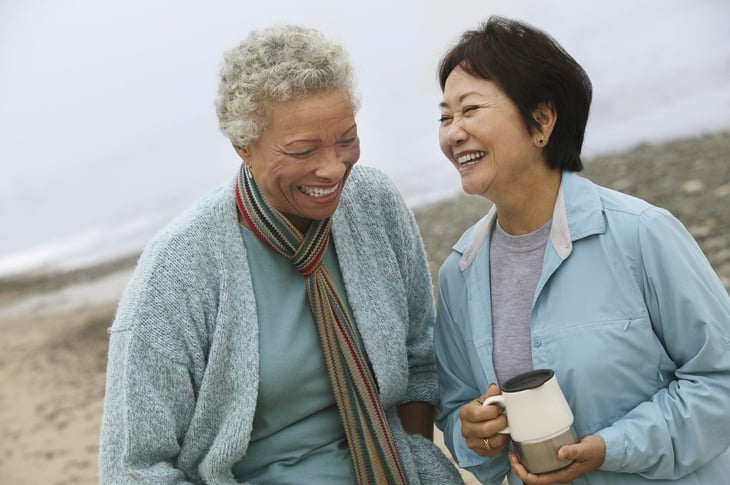
An article on the Blue Zones website describes moai in Okinawa like this:
“The term originated hundreds of years ago as a means of a village’s financial support system. Originally, moais were formed to pool the resources of an entire village for projects or public works. If an individual needed capital to buy land or take care of an emergency, the only way was to pool money locally.
“Today the idea has expanded to become more of a social support network, a cultural tradition for built-in companionship.
“In small neighborhoods across Okinawa, friends “meet for a common purpose” (sometimes daily and sometimes a couple days a week) to gossip, experience life, and to share advice and even financial assistance when needed. They call these groups their moai.
“Traditionally, groups of about five young children were paired together, and it’s then that they made a commitment to each other for life. As their second family, they would meet regularly with their moai for both work and play and to pool resources. Some moais have lasted over 90 years!”
You might not be able to have a moai in the strictest translation, but you should strive to have a close-knit set of friends and meet regularly.
What Is Hara Hachi Bu?
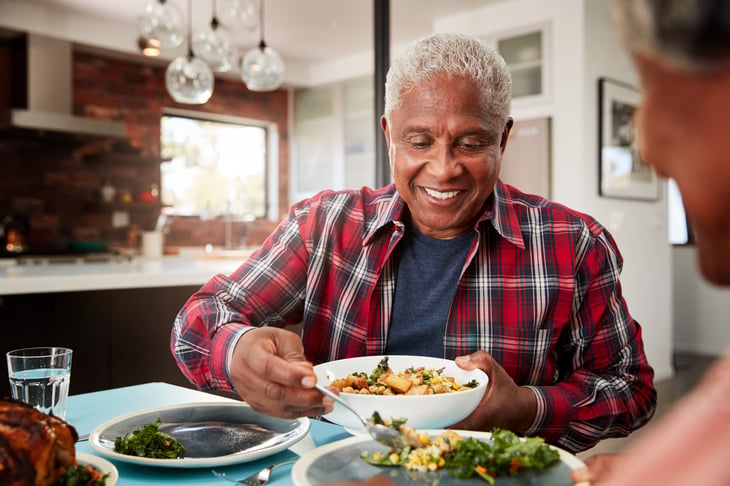
Compared to ikigai and moai, hara hachi bu is super straightforward and relatively easy to apply to your life.
Hara hachi bu is a dietary rule that says that you should eat until you are 80% full. By limiting your intake to near, but not quite saturation, you are consuming fewer calories, but not less than you actually need.
You see, your brain is about 10-20 minutes behind your stomach. So, when you stop eating when you feel 80% full, you are actually full.
Practicing hara hachi bu, the average Okinawan man consumes only 1,800 calories a day, compared with an average American who eats closer to 2,500 calories.
Other Long Life Lessons From the Okinawans
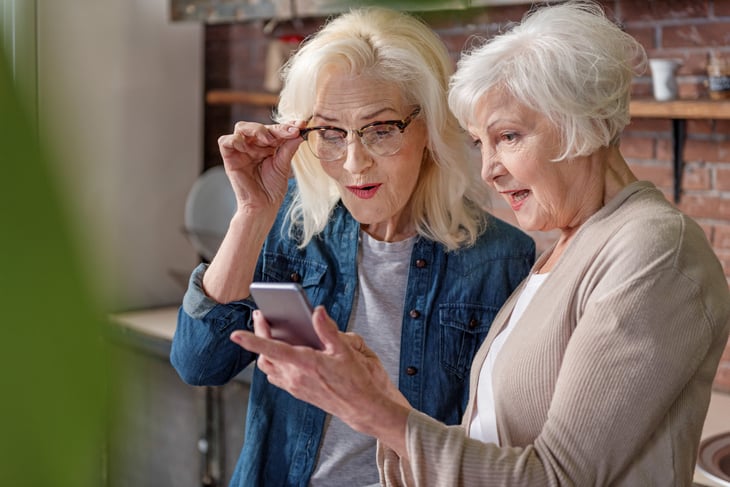
Researchers believe that ikigai, moai and hara hachi bu are three big reasons the Okinawans live such long and healthy lives.
Other contributors include the following.
Plant-Based, Highly Varied Diet
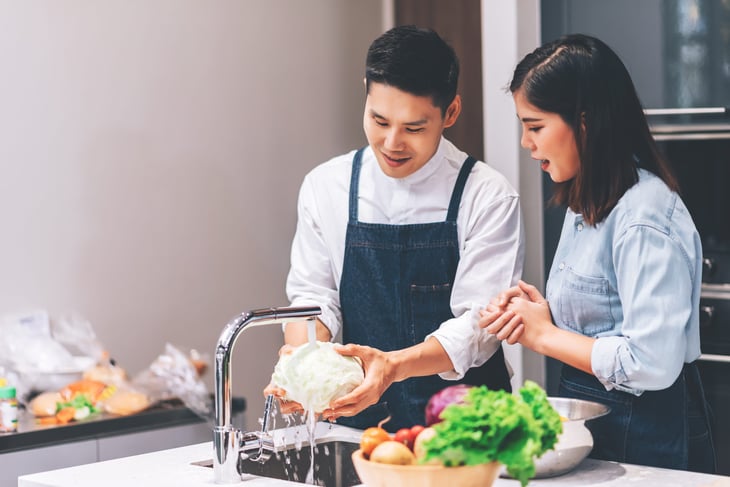
The Okinawans eat way more vegetables than most people (mostly green and yellow ones), as well as whole grains, tofu, fish and other legumes. They eat very little sugar, and very little meat, dairy or eggs.
In a CNN interview with Sanjay Gupta, Craig Willcox, the author of the book “The Okinawa Program,” explained that the Okinawans “typically eat seven different fruits and vegetables and 18 different foods a day, and more than 200 different foods and spices regularly in their overall diet. In the United States, we are lucky to consume a dozen different foods in our regular daily diet, total.”
The vegetarian diet is inherently full of antioxidants, flavonoids, fiber, nutrients and is naturally lower-calorie and anti-inflammatory.
Activity
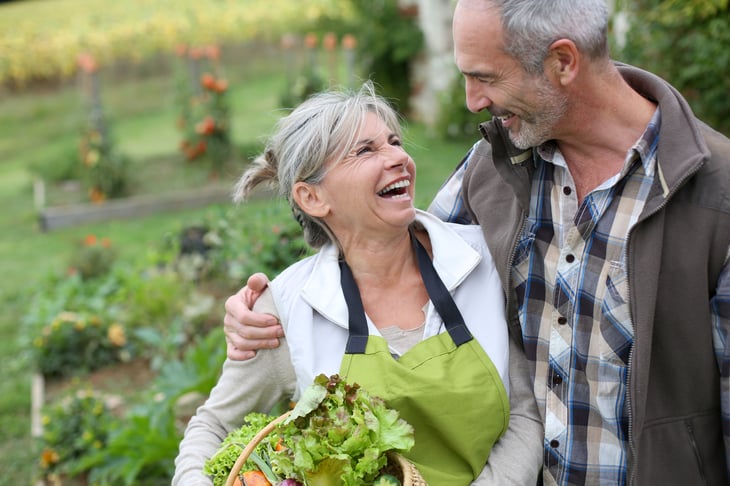
Staying active does not mean running 10 miles a day or sweating it out in the gym. The Okinawan idea of exercise is making physical activity a part of everyday life.
Almost all Okinawans are active walkers and gardeners. Gardening is a daily physical activity that encourages a wide range of mobility.
Okinawans are also more apt to walk, ride bikes and even participate in martial arts.
Furthermore, their homes have very limited furniture and they eat their meals sitting on tatami mats on the floor. Getting up and down from the ground increases flexibility and strength.
Sunshine
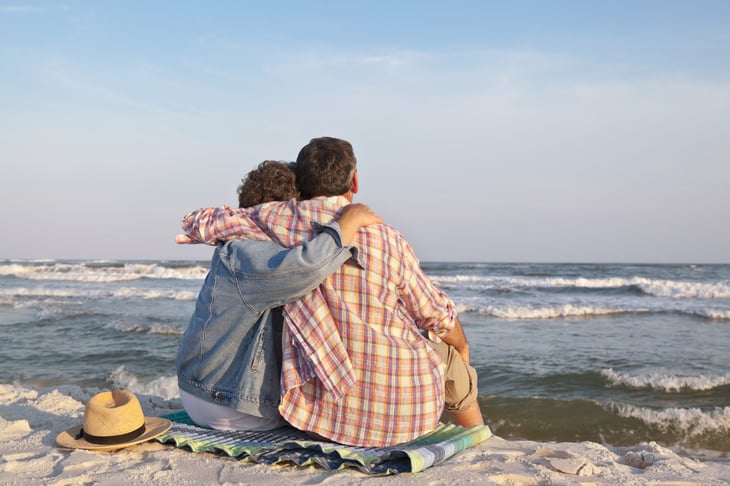
Due to their tropical locale and active outdoor lifestyle, Okinawans benefit from year-long exposure to vitamin D.
Outside Magazine recently asked, “Is Sunscreen the New Margarine?”
It turns out that people with low levels of vitamin D — the hormone made by our skin with the help of sunlight — have significantly higher rates of almost every disease and disorder you can think of.
And, vitamin D supplements simply don’t have the positive health effects as exposure to the sun itself. While skin cancer is a risk of sun exposure, it may be a lesser evil than lack of vitamin D.
Here are a few ideas for how to make a sunnier climate a retirement reality.





Add a Comment
Our Policy: We welcome relevant and respectful comments in order to foster healthy and informative discussions. All other comments may be removed. Comments with links are automatically held for moderation.